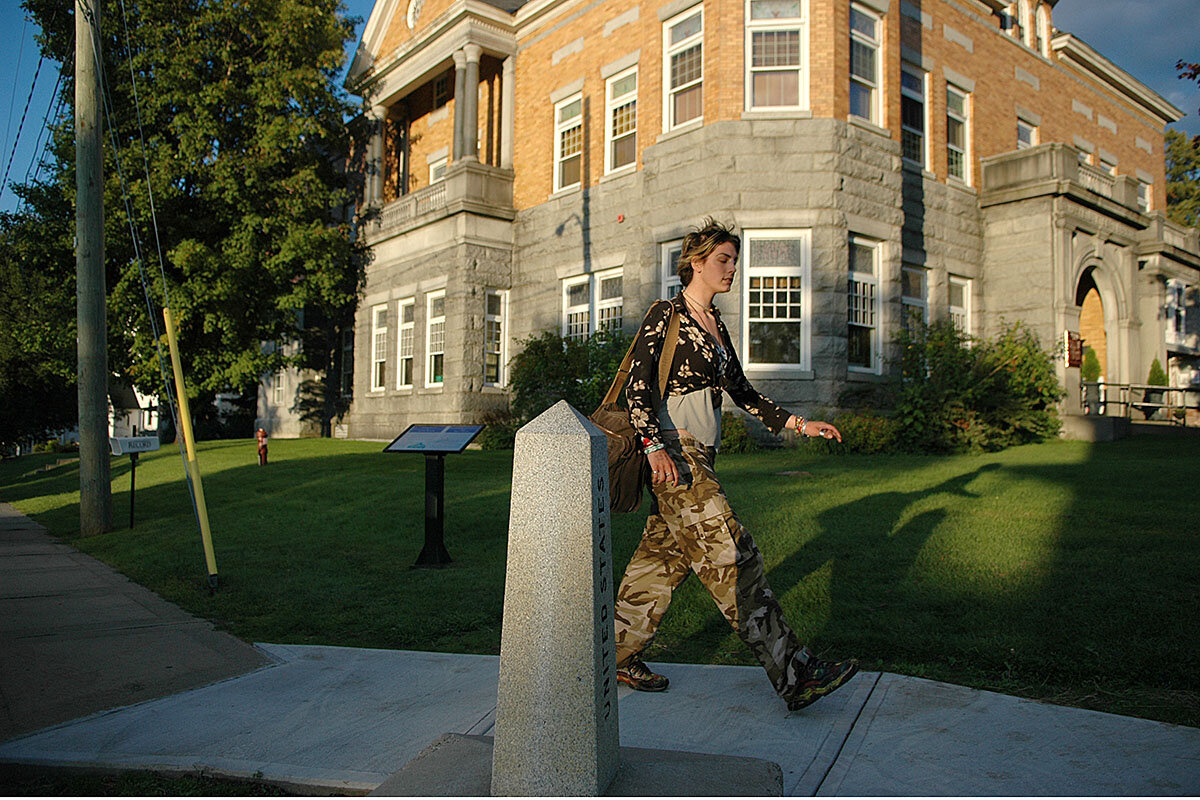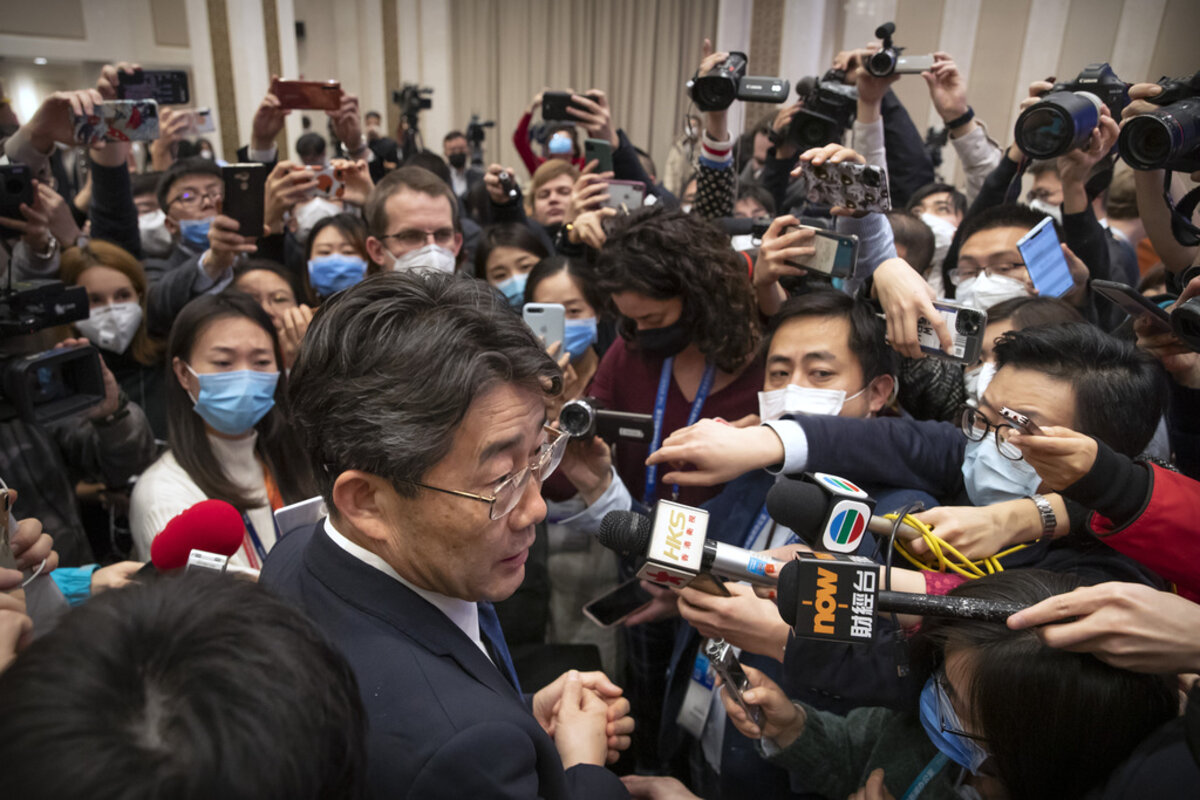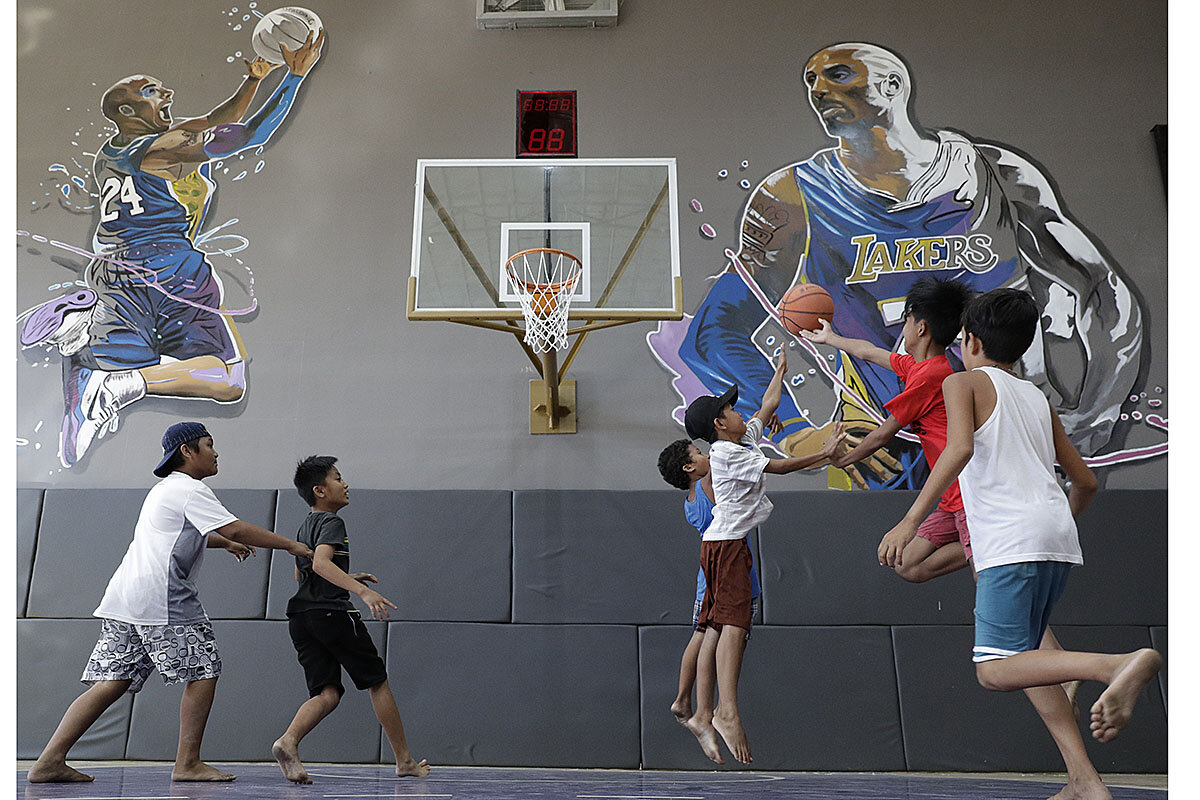Our first story: Unlike former President Bill Clinton, who chose not to say much about impeachment, Mr. Trump seems to be embracing a split-screen approach, trying to capture attention on his own terms.
Monitor Daily Podcast
- Follow us:
- Apple Podcasts
- Spotify
- RSS Feed
- Download
 Amelia Newcomb
Amelia Newcomb
Today, our stories include how President Trump is managing impeachment, how Harry and Meghan are managing their new life, and how a library is literally divided by international affairs. And please click here for our tribute to basketball legend Kobe Bryant.
If you like the World Cup, you’re a globalist. And you might just represent the best hope this century has to offer.
Just listen to Yuval Noah Harari, a historian at Hebrew University of Jerusalem and author of “Sapiens: A Brief History of Humankind.” Speaking at Davos 2020 last week, he warned that humanity faces three existential threats that demand global solutions.
How does that work amid rising nationalism? Mr. Harari cited the World Cup for soccer, an event he says brims with both national fervor and “global harmony.” That’s because countries can’t compete unless they all agree on the rules.
In other words, it’s not impossible. Indeed, in recent decades, Mr. Harari says, “humanity has managed to do the impossible. ... We have built the rule-based liberal global order, that despite many imperfections, has ... created the most prosperous and most peaceful era in human history.” Yet, that order “is now like a house that everybody inhabits and nobody repairs.”
But toolboxes are in fact being hauled out. Next month, the Monitor will launch a series on how, around the world, people are working to counter prevailing winds of uncertainty and fear. We’re talking with participants in a national citizens initiative on climate in Britain, looking at democratic pushback in Brazilian communities, and listening to undaunted rights advocates in the Middle East and persistent democracy supporters in Hong Kong.
Do long-trusted alliances still matter? Does an order that emphasizes democracy, free trade, rule of law still hold? Do people feel they can make a difference? I hope you’ll join us Feb. 17 as we start to explore these questions.











